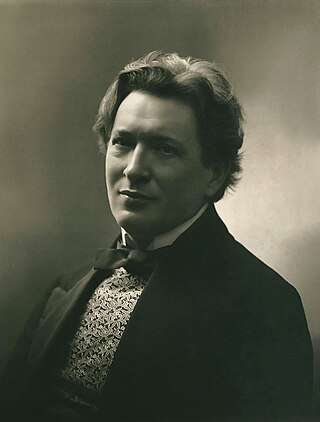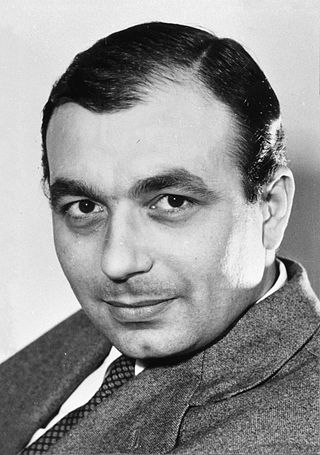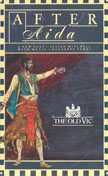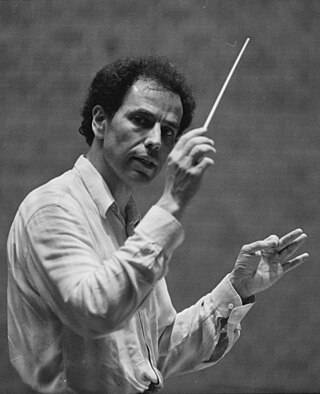Related Research Articles

Giuseppe Fortunino Francesco Verdi was an Italian composer best known for his operas. He was born near Busseto to a provincial family of moderate means, receiving a musical education with the help of a local patron, Antonio Barezzi. Verdi came to dominate the Italian opera scene after the era of Gioachino Rossini, Vincenzo Bellini, and Gaetano Donizetti, whose works significantly influenced him.

Rigoletto is an opera in three acts by Giuseppe Verdi. The Italian libretto was written by Francesco Maria Piave based on the 1832 play Le roi s'amuse by Victor Hugo. Despite serious initial problems with the Austrian censors who had control over northern Italian theatres at the time, the opera had a triumphant premiere at La Fenice in Venice on 11 March 1851.
A baritone is a type of classical male singing voice whose vocal range lies between the bass and the tenor voice-types. The term originates from the Greek βαρύτονος (barýtonos), meaning "heavy sounding". Composers typically write music for this voice in the range from the second F below middle C to the F above middle C (i.e. F2–F4) in choral music, and from the second G below middle C to the G above middle C (G2 to G4) in operatic music, but the range can extend at either end. Subtypes of baritone include the baryton-Martin baritone (light baritone), lyric baritone, Kavalierbariton, Verdi baritone, dramatic baritone, baryton-noble baritone, and the bass-baritone.

Ferruccio Busoni was an Italian composer, pianist, conductor, editor, writer, and teacher. His international career and reputation led him to work closely with many of the leading musicians, artists and literary figures of his time, and he was a sought-after keyboard instructor and a teacher of composition.

Francesco Maria Piave was an Italian opera librettist who was born in Murano in the lagoon of Venice, during the brief Napoleonic Kingdom of Italy.
Michael Peter Finnissy is an English composer, pianist, and pedagogue. An immensely prolific composer, his music is "notable for its dramatic urgency and expressive immediacy".

Attila is an opera in a prologue and three acts by Giuseppe Verdi to an Italian libretto by Temistocle Solera, based on the 1809 play Attila, König der Hunnen by Zacharias Werner. The opera received its first performance at La Fenice in Venice on 17 March 1846.

Mikhail Anatolyevich Svetlov is a Russian bass known for the range and beauty of his voice as well as his acting ability. His voice was described by The Washington Post as a "titanic, all-encompassing bass". He was nominated for a 2003 Grammy Award for a recording of Stravinsky's Histoire du Soldat and is the first Russian bass ever to perform the title roles in Don Giovanni and The Flying Dutchman.

Renato Bruson is an Italian operatic baritone. Bruson is widely considered one of the most important Verdi baritones of the late 20th and early 21st century.

Kamen Tchanev / Kamen Chanev was a Bulgarian operatic tenor who enjoyed an international career.

Carlo Colombara is an Italian operatic bass. He has sung leading roles in many major opera houses including Teatro alla Scala ; the Vienna State Opera ; the Real Teatro di San Carlo ; the Arena di Verona ; the Royal Opera House, and the Metropolitan Opera.

Teresa Stolz was a Czech spinto soprano, for long a resident in Italy, who was associated with significant performances of the works of Giuseppe Verdi, some with his supervision including Aida in the first performance in Italy, and the soprano part in his Requiem. She was his companion from 1897.

After Aida is a 1985 play-with-music by Julian Mitchell. It is about Giuseppe Verdi, and the pressure put upon him after his attempt to retire from composing. Continued insistent prodding from his friends eventually results in one of his greatest masterpieces, the opera Otello, which premiered in 1887.

Anthony Michaels-Moore is an English operatic baritone and the first British winner of the Luciano Pavarotti International Voice Competition. Michaels-Moore has since performed in many of the world's major opera houses across Europe, the Americas, and Asia. He has distinguished himself as a specialist in Verdi and Puccini roles, most renowned for his portrayals of Falstaff, Nabucco, Rigoletto, Simon Boccanegra, Iago in Otello, Germont in La traviata, Sharpless in Madama Butterfly, and Scarpia in Tosca. In addition to the standard repertoire, he has sung and recorded the baritone roles of some of the less-known 19th Century Italian operas, as well as the popular English art song cycles by Stanford and Vaughan Williams.

Eduard Philip Spanjaard, known professionally as Ed Spanjaard, is a Dutch conductor and pianist.
Željko Lučić, is a Serbian operatic baritone who has had an active international career since 1993. He was a member of the Serbian National Theatre in Novi Sad from 1993 to 1998 and at the Frankfurt Opera from 1998 to 2008. He is particularly well known for his performances in the operas of Giuseppe Verdi; having portrayed a total of 23 leading roles from the great composer's works.
Carlo Grante is an Italian classical pianist. Born in L'Aquila and graduating from the National Academy of St Cecilia in Rome, he performs classical and contemporary classical music. His discography consists of more than 50 albums.

Ildàr Amìrovich Abdrazàkov is a Russian bass opera singer. Honoured Artist of Russia (2021).
George Petean is a Romanian operatic baritone.
References
Notes
- ↑ Finnissy (2016), p. (3).
- ↑ Pace (2001), p. 3.
- ↑ Pace (2001), p. 6.
- ↑ Jack Sheen, "Interview with Michael Finnissy", ddmmyy website, accessed 21 March 2016
- ↑ Finnissy (2002), pp. (3)–(4).
- ↑ Pace (2001), pp. 8–9.
- ↑ Finnissy (2016), pp. (1)–(3): Pace (2001), p. 9.
- ↑ Pace (2016), p. (10).
- ↑ Reviews cited on Ian Pace website, accessed 21 March 2016
Sources
- Finnissy, Michael (2002). Booklet notes accompanying CD Etched in Bright Sunlight. Metronome Recordings, CD MET CD 1058
- Finnissy, Michael (2016). "Notes to the Music", in Verdi Transcriptions (programme 13 March 2016), Guildhall School of Music, pp. (1)–(3).
- Pace, Ian (2001). "Michael Finnissy and Transcription", in booklet accompanying CD set Michael Finnissy Verdi Transcriptions. Metier Records, CDs MSV CD92027 a/b.
- Pace, Ian (2016). "A Guide to the Verdi Transcriptions of Michael Finnissy", in Verdi Transcriptions (programme 13 March 2016), Guildhall School of Music, pp. (4)–(10).